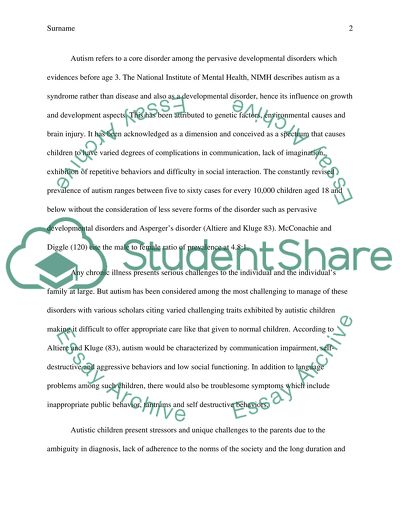Cite this document
(“Autism Research Paper Example | Topics and Well Written Essays - 1750 words”, n.d.)
Retrieved from https://studentshare.org/english/1463905-autism
Retrieved from https://studentshare.org/english/1463905-autism
(Autism Research Paper Example | Topics and Well Written Essays - 1750 Words)
https://studentshare.org/english/1463905-autism.
https://studentshare.org/english/1463905-autism.
“Autism Research Paper Example | Topics and Well Written Essays - 1750 Words”, n.d. https://studentshare.org/english/1463905-autism.


